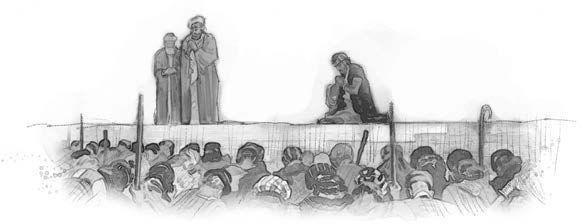Seventh-day Adventist Church president Ted N.C. Wilson was thinking about religious literature when I arrived in a hotel lobby in Uganda to accompany him and other church leaders to a meeting with the African country’s president, Yoweri Museveni.
“I have a pen for the president”, Pastor Wilson told church leaders, referring to a special pen engraved with the name and logo of the Seventh-day Adventist Church. “But do you have some books for him?”
I spoke up. “I have a nice-looking color ‘Steps to Christ’ up in my room”, I said.
Glancing at his watch, Pastor Wilson urged me to hurry upstairs for the book.
As I rushed to my room, I marveled that I had packed the book in the first place.
Two weeks earlier, I shook my head “no” when my father asked whether I planned to take any sharing books on the trip. I explained that I had taken five copies of “Steps to Christ” on my previous trip, to Russia, and had struggled to find any takers.
“You should take some books anyway”, my father insisted.
Reluctantly, I bought five copies of “Steps to Christ” at the Adventist Book Center in Keene, Texas.
But the books didn’t satisfy my father.
“Will you take a new Bible, too?” he asked.
I often buy a new Bible before a trip just in case I’m asked to give a sermon, and then I give it away. I prefer to read the Bible on my cell phone, but I don’t like to hold my cell phone while preaching.
“No need for a Bible”, I told my father. “I won’t be preaching”.
My father was not deterred. I bought a black-leather New King James Bible.
In the Ugandan hotel room, I remembered the Bible and took it and “Steps to Christ” to Pastor Wilson.
A short time later, President Museveni welcomed us to State House Uganda in Entebbe and immediately plied Pastor Wilson with questions about why Adventists keep the Sabbath on Saturday. Pastor Wilson gave a short Bible study and, later, appealed for the country to abolish Saturday exams for Adventist students. To his delight, President Museveni agreed to look into the matter.
Pastor Wilson presented the engraved pen to President Museveni and suggested that he could use it to sign important documents or, more important, to underline verses in the Bible.
Then he handed over the Bible and “Steps to Christ” to President Museveni, left, who smilingly raised them for the guests to see.
That evening, I excitedly called my father on Skype. “Thank you for listening to the promptings of the Holy Spirit”, I said.
Now in my travels, I always carry a brand-new Bible and copies of “Steps to Christ”.

